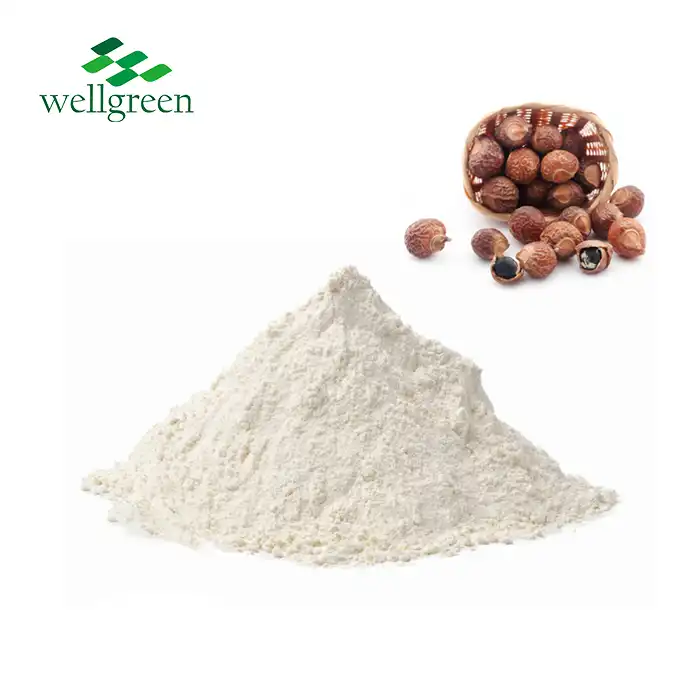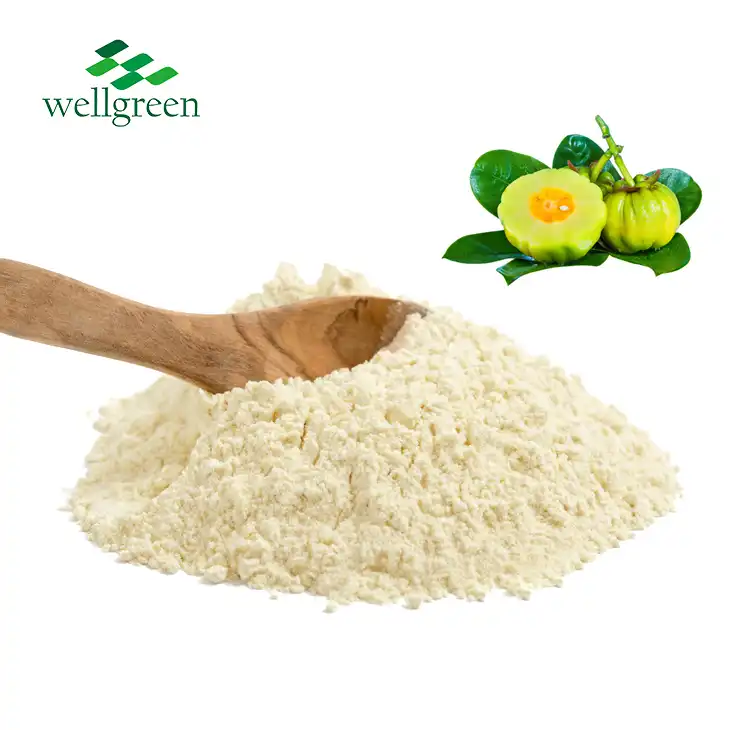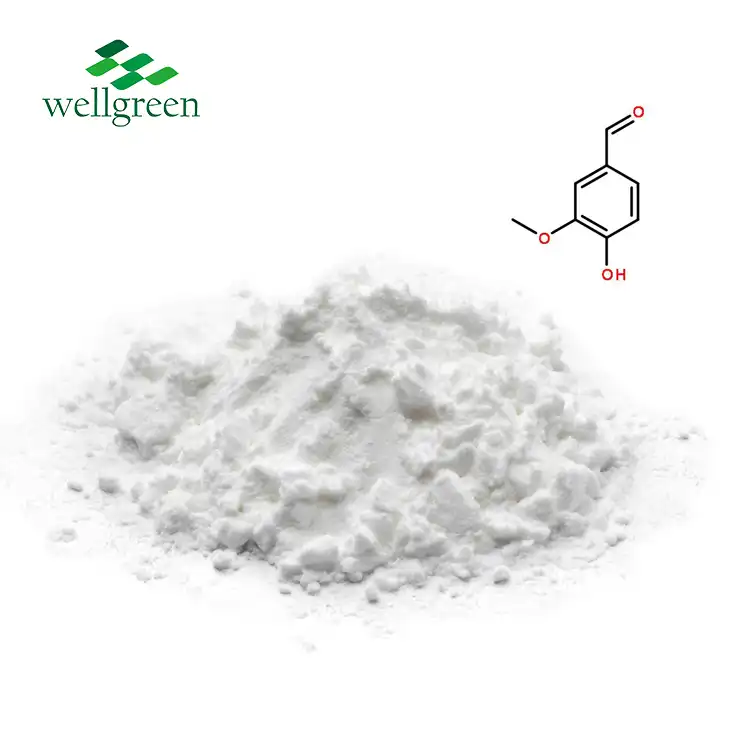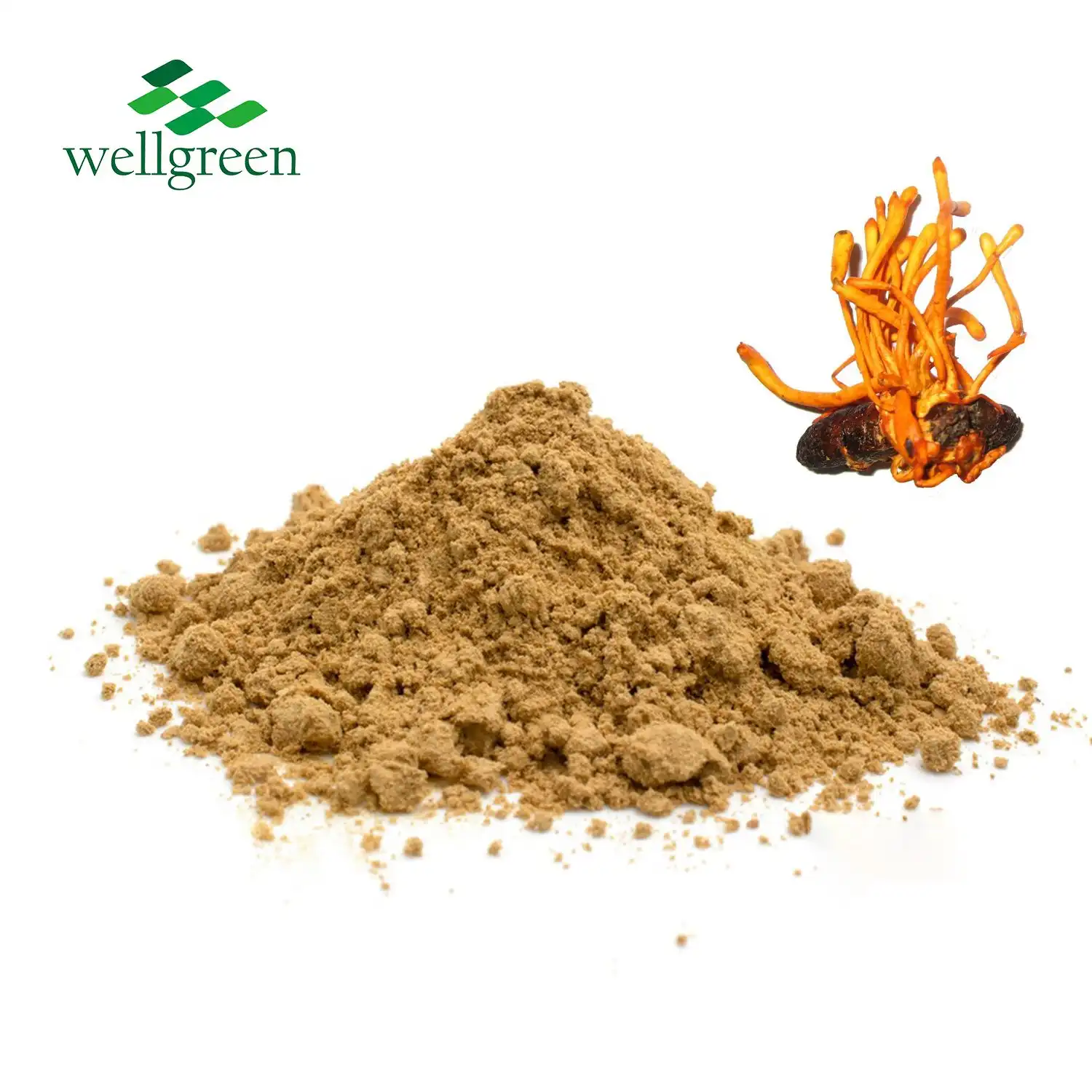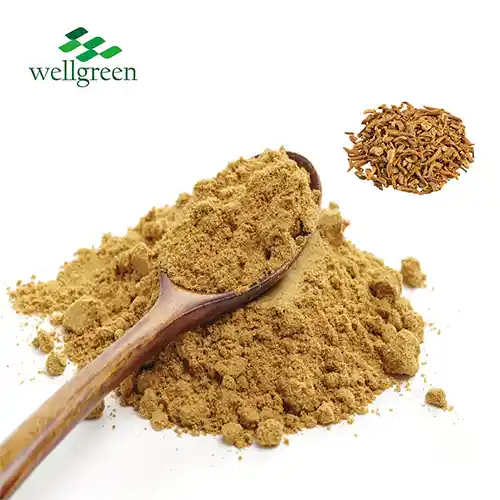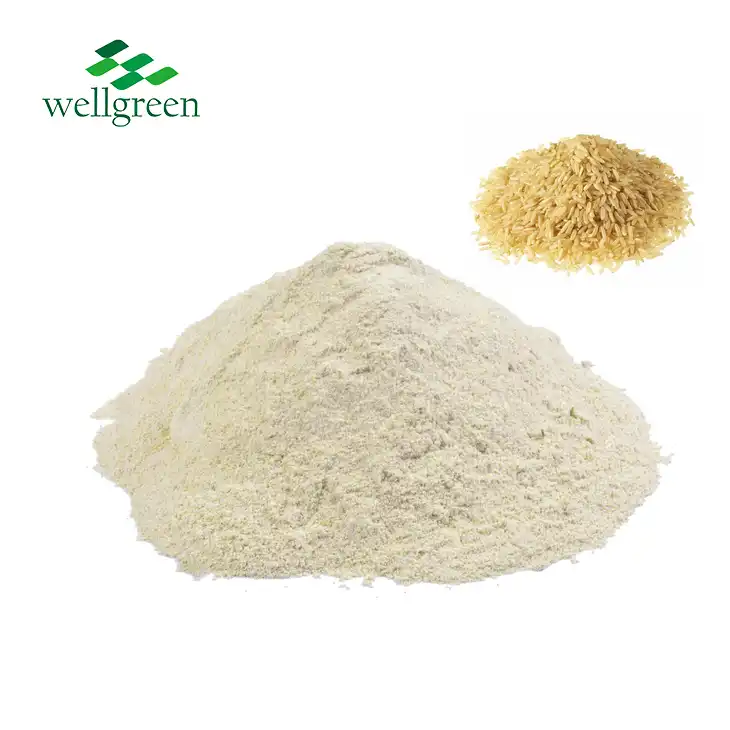King Trumpet vs Oyster Mushroom Powder: What’s the Difference?
2025-07-01 13:37:06
King trumpet and oyster mushroom powders are two popular functional food ingredients derived from edible fungi. While both belong to the Pleurotus genus, they offer distinct nutritional profiles and culinary applications. King trumpet mushroom powder, made from Pleurotus eryngii, is known for its robust umami flavor and dense texture. It's particularly rich in ergothioneine, an antioxidant amino acid. Oyster mushroom powder, typically from Pleurotus ostreatus, has a milder taste and is prized for its high protein content and beta-glucans. Both powders provide unique health benefits, but King Trumpet stands out for its higher mineral content and potential cognitive support, while Oyster excels in immune-boosting properties. Understanding these differences can help consumers choose the right mushroom powder for their specific needs and preferences.
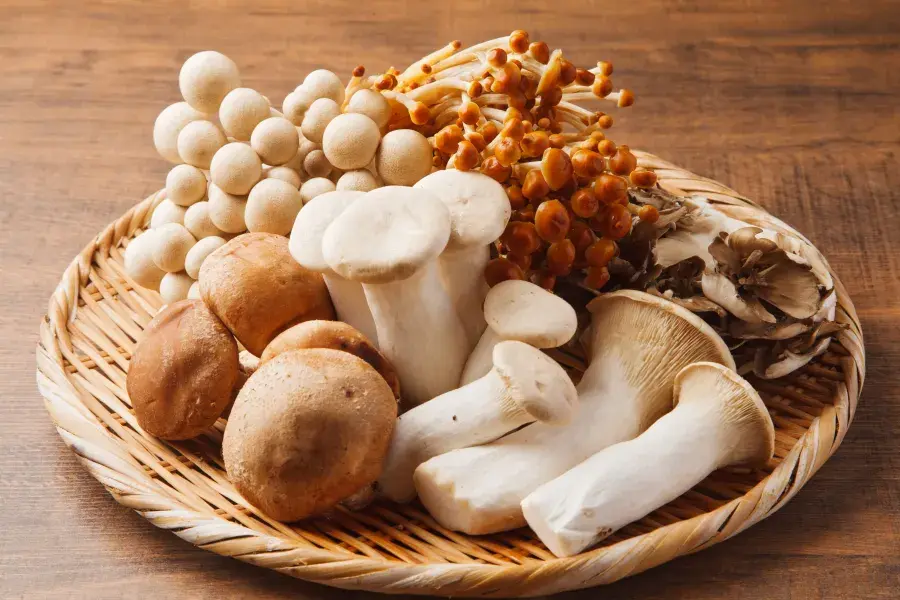
What Are the Key Nutritional Differences Between King Trumpet and Oyster Mushrooms?
Macronutrient Composition
King Trumpet and Oyster mushrooms share similarities in their macronutrient profiles, but notable differences exist. King Trumpet mushrooms, also known as King Oyster or Pleurotus eryngii, contain a higher proportion of complex carbohydrates. These carbohydrates contribute to the mushroom's meaty texture and provide sustained energy. Organic king trumpet mushroom powder retains these complex carbohydrates, making it an excellent addition to smoothies or baked goods for those seeking a nutritious energy boost.
Oyster mushrooms, on the other hand, boast a slightly higher protein content. This makes oyster mushroom powder a popular choice among vegetarians and vegans looking to increase their protein intake. The protein in oyster mushrooms is complete, containing all essential amino acids, which is relatively rare in the plant kingdom.
Vitamin and Mineral Content
When it comes to micronutrients, both mushroom powders offer impressive profiles, but with distinct strengths. King trumpet mushroom powder is particularly rich in selenium, a powerful antioxidant that supports thyroid function and immune health. It also contains higher levels of potassium, which is crucial for maintaining proper heart rhythm and blood pressure.
Oyster mushroom powder shines in its B-vitamin content, especially niacin (vitamin B3) and riboflavin (vitamin B2). These vitamins play essential roles in energy metabolism and cellular function. Additionally, oyster mushrooms are a good source of iron, making their powder form beneficial for individuals at risk of iron deficiency.
Unique Bioactive Compounds
Both king trumpet powder and oyster mushroom powder contain beta-glucans, polysaccharides known for their immune-modulating properties. However, the specific types and concentrations of these compounds differ between the two species. King trumpet mushrooms are particularly rich in ergothioneine, a unique amino acid with potent antioxidant properties. This compound is believed to support cognitive function and may offer neuroprotective benefits.
Oyster mushrooms, conversely, contain higher levels of lovastatin, a natural compound that has been shown to help lower cholesterol levels. This makes oyster mushroom powder potentially beneficial for individuals concerned about cardiovascular health.
Functional Benefits: King Trumpet Powder vs. Oyster Powder
Immune System Support
Both king trumpet powder and oyster mushroom powder offer significant immune-boosting properties, but through slightly different mechanisms. The beta-glucans found in king trumpet mushrooms have been shown to enhance the activity of natural killer cells, a crucial component of the innate immune system. These cells play a vital role in identifying and destroying potentially harmful invaders in the body.
Oyster mushroom powder, while also containing immune-stimulating beta-glucans, has an additional advantage in its higher content of zinc. Zinc is a mineral essential for the development and function of immune cells. Regular consumption of oyster mushroom powder may therefore provide more comprehensive immune support, particularly during cold and flu seasons.
Antioxidant Capacity
When it comes to antioxidant potential, king trumpet powder takes the lead. The high concentration of ergothioneine in king trumpet mushrooms sets it apart. This unique antioxidant is not produced by the human body and must be obtained through diet. Ergothioneine has been shown to accumulate in areas of high oxidative stress, such as the liver, kidneys, and eyes, providing targeted protection against cellular damage.
While oyster mushroom powder also offers antioxidant benefits, its profile is more diverse, including compounds like phenolics and flavonoids. These antioxidants work synergistically to neutralize free radicals and reduce oxidative stress throughout the body. The combination of different antioxidants in oyster mushroom powder may provide a broader spectrum of protection against various types of oxidative damage.
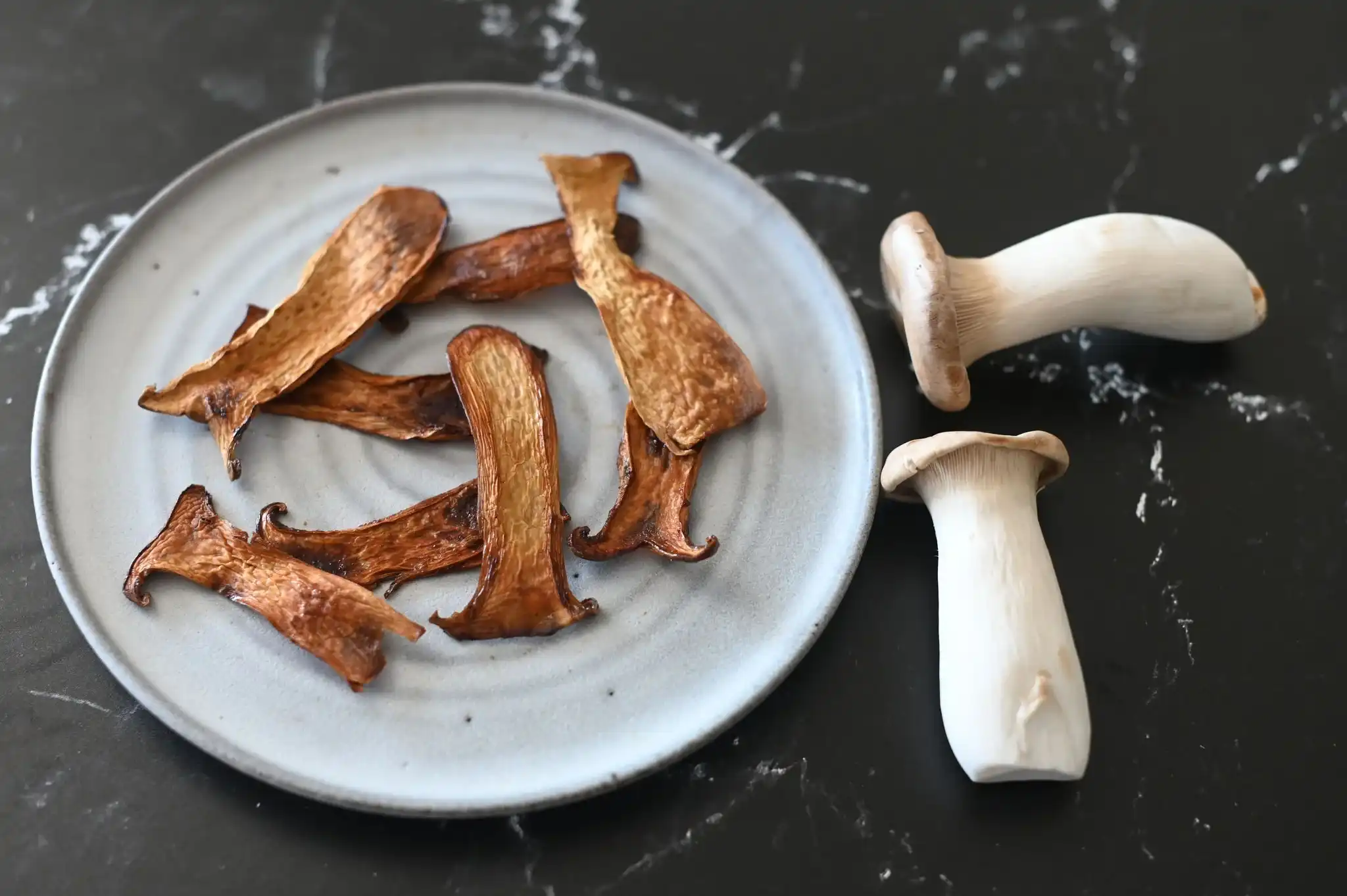
Cardiovascular Health
Both mushroom powders offer potential benefits for heart health, but through different pathways. King trumpet powder's high potassium content may help regulate blood pressure, an important factor in cardiovascular health. Additionally, the ergothioneine in king trumpet mushrooms has been associated with reduced inflammation in blood vessels, which could potentially lower the risk of atherosclerosis.
Oyster mushroom powder, rich in lovastatin, may have a more direct impact on cholesterol levels. Studies have shown that regular consumption of oyster mushrooms can help lower LDL (bad) cholesterol levels, potentially reducing the risk of heart disease. The fiber content in both mushroom powders also contributes to heart health by helping to maintain healthy cholesterol levels and promoting regular bowel movements.
Flavor Profiles and Culinary Applications Compared
Taste and Aroma Characteristics
The flavor profiles of king trumpet and oyster mushroom powders are distinctly different, influencing their culinary applications. King trumpet powder boasts a rich, umami flavor with subtle notes of earth and nuttiness. This robust taste is due to its high concentration of natural glutamates, compounds responsible for the savory umami flavor. The aroma of king trumpet powder is deep and complex, often described as meaty or reminiscent of aged cheese.
Oyster mushroom powder, in contrast, offers a milder, more delicate flavor. It has a light, slightly sweet taste with hints of anise or licorice. The aroma is subtle and fresh, reminiscent of the forest floor. This gentler profile makes oyster mushroom powder more versatile in recipes where a strong mushroom flavor isn't desired.
Cooking and Baking Applications
The distinct flavors of these mushroom powders lend themselves to different culinary uses. King trumpet powder, with its intense umami flavor, excels in savory dishes. It's an excellent addition to soups, stews, and sauces, where it can enhance depth and complexity. When used in marinades or rubs for meats or plant-based proteins, king trumpet powder can impart a rich, meaty flavor. In baking, it can add an intriguing savory note to breads or crackers.
Oyster mushroom powder's milder flavor makes it more adaptable in a wider range of recipes. It can be seamlessly incorporated into smoothies, protein shakes, or baked goods without overpowering other flavors. In savory cooking, it works well as a seasoning for light dishes like seafood or poultry, or as a flavor enhancer in vegetable-based soups and sauces. Its subtle taste also makes it suitable for use in desserts or sweet baked goods, where it can add nutritional value without altering the flavor profile significantly.
Texture and Thickening Properties
Beyond flavor, the textural properties of these mushroom powders can significantly impact their culinary applications. King trumpet powder, derived from the dense and meaty king trumpet mushroom, has excellent thickening properties. When added to liquids, it absorbs moisture and creates a rich, velvety texture. This makes it particularly useful in creating creamy sauces, gravies, or as a natural thickener in soups.
Oyster mushroom powder, while also possessing some thickening abilities, is generally lighter and less dense. It integrates more easily into liquids without significantly altering texture. This property makes it ideal for use in beverages, dressings, or light sauces where a smooth, uniform consistency is desired. In baking, oyster mushroom powder can be used to replace a portion of flour, adding nutrition without substantially changing the texture of the final product.
Conclusion
King trumpet and oyster mushroom powders offer unique nutritional profiles and culinary applications. King Trumpet powder stands out for its rich umami flavor, high ergothioneine content, and potent thickening properties, making it ideal for savory dishes and sauces. Oyster mushroom powder, with its milder taste and higher protein content, excels in versatility and immune-boosting potential. Both powders provide significant health benefits, from antioxidant support to potential cardiovascular improvements. The choice between them ultimately depends on individual nutritional needs, flavor preferences, and intended culinary uses. Incorporating either or both of these functional mushroom powders into your diet can be a flavorful way to enhance your overall health and culinary experiences.
Contact Us
Ready to explore the world of functional mushroom powders? Xi'an wellgreen offers premium quality organic king trumpet mushroom powder and other natural plant extracts. For more information about our products or to place an order, contact us at wgt@allwellcn.com. Elevate your health and culinary creations with our superior mushroom powders today!
References
1. Dubost, N. J., Beelman, R. B., Peterson, D., & Royse, D. J. (2007). Identification and quantification of ergothioneine in cultivated mushrooms by liquid chromatography–mass spectrometry. International Journal of Medicinal Mushrooms, 9(2), 163–175.
2. Kalac, P. (2009). Chemical composition and nutritional value of European species of wild growing mushrooms: A review. Food Chemistry, 113(1), 9–16.
3. Wasser, S. P. (2011). Current findings, future trends, and unsolved problems in studies of medicinal mushrooms. Applied Microbiology and Biotechnology, 89(5), 1323–1332.
4. Alam, N., Yoon, K. N., Lee, T. S., & Cho, H. J. (2011). Antioxidant activities of methanolic extracts from mushrooms cultivated in Korea. Preventive Nutrition and Food Science, 16(3), 194–200.
5. Jayakumar, T., Thomas, P. A., & Geraldine, P. (2011). In-vitro antioxidant activities of an ethanolic extract of the oyster mushroom, Pleurotus ostreatus. Innovative Food Science & Emerging Technologies, 12(3), 328–334.
6. Gunde-Cimerman, N., & Plemenitaš, A. (2009). The genus Pleurotus: A review of the medicinal potential of oyster mushrooms. Journal of Medicinal Mushrooms, 11(1), 7–15.

